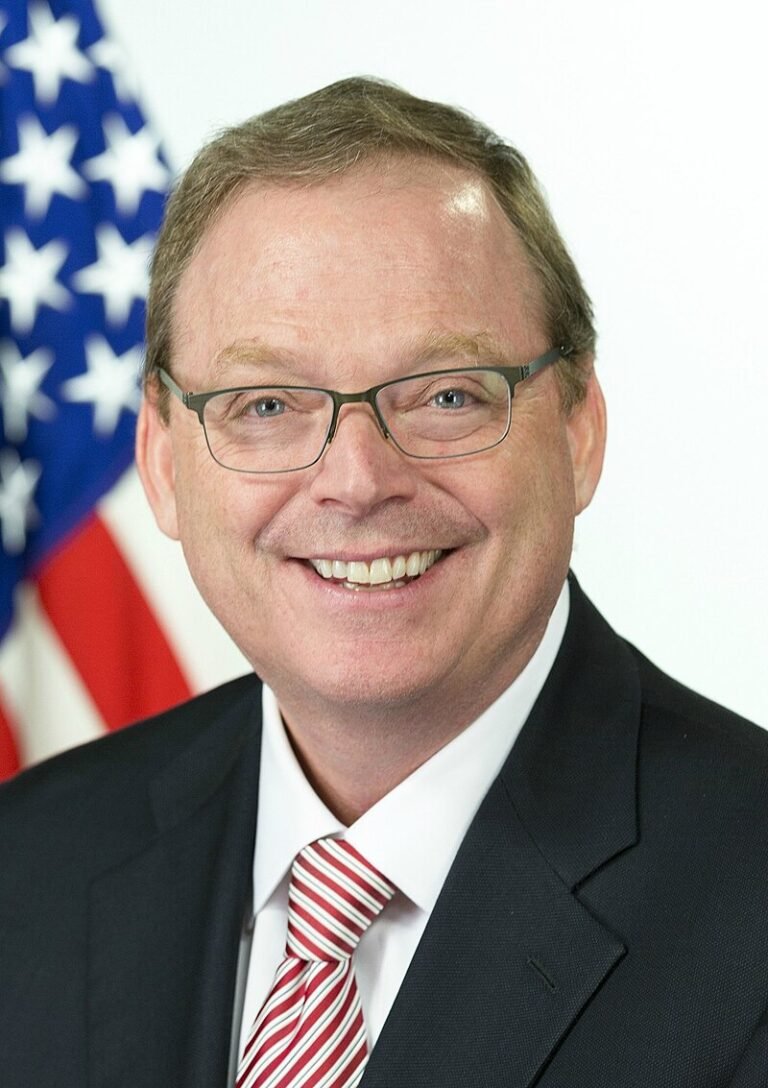Kevin Hassett is a prominent American economist who has played a significant role in shaping economic policy in the United States over the past several decades. With a strong academic background and extensive experience in both government and think tanks, Hassett is best known for his tenure as Chair of the Council of Economic Advisers (CEA) during President Donald Trump’s administration. His influence on tax reform, fiscal policy, and economic growth debates has made him a key figure in contemporary economic discussions.
Hassett earned his Ph.D. in economics from the University of Pennsylvania, a prestigious institution known for its rigorous economics program. Before his public service, he worked in academia, including teaching economics at Columbia Business School, where he helped train the next generation of economists. This strong foundation in economic theory and policy equipped him well for his future roles in government and research.
Throughout his career, Kevin Hassett has been associated with the American Enterprise Institute (AEI), a conservative think tank in Washington, D.C. There, he served as a senior fellow and director of economic policy studies. His work at AEI involved research on taxation, fiscal policy, and economic growth. Hassett’s policy perspective is often aligned with supply-side economics, advocating for tax cuts and deregulation as tools to stimulate economic expansion and increase employment. His views have been influential among policymakers and economists who support market-friendly approaches to economic management.
In 2017, Hassett was appointed Chair of the Council of Economic Advisers under President Donald Trump. This role placed him at the center of economic policymaking, where he advised the president on various issues, including tax reform, trade, and economic growth strategies. One of his most notable contributions during this period was his involvement in promoting the Tax Cuts and Jobs Act of 2017. This legislation was one of the most significant tax overhauls in recent U.S. history, aiming to reduce corporate tax rates and provide relief to individuals in an effort to boost economic growth. Hassett championed the idea that these tax cuts would lead to higher investment, job creation, and wage increases, arguing from a data-driven standpoint to support these outcomes.
Kevin Hassett’s influence extended beyond tax policy. He was also involved in discussions related to trade policy, tariffs, and international economic relations. Under his tenure, the administration used tariffs strategically as leverage in trade negotiations. Hassett advocated for policies that balanced protecting American industries while encouraging fair trade practices. His approach recognized the complexities of global markets and the need for pragmatic economic strategies in an increasingly interconnected world.
Before his time at the White House, Hassett contributed to economic policy as a senior economist at the Federal Reserve Board, where he engaged in research and analysis related to monetary policy and financial markets. This experience gave him a comprehensive understanding of both fiscal and monetary policy tools, enriching his ability to advise on a broad range of economic issues.
Kevin Hassett has also made a mark as an author and commentator. He co-wrote the book “Dow 36,000” with James K. Glassman, which argued that stock prices were undervalued and projected a rapid rise in the market. While the book’s predictions were controversial and debated, it reflected Hassett’s willingness to challenge conventional economic wisdom. Beyond books, he frequently contributes articles and opinion pieces to major publications and participates in media interviews where he explains economic trends and policy implications in accessible terms.
After stepping down from his role at the Council of Economic Advisers in 2019, Hassett returned to the private sector and think tank work. He continues to be an influential voice in economic policy debates, focusing on fiscal responsibility, trade, and growth. His ongoing involvement in consulting and public discourse ensures that his expertise remains relevant as new economic challenges arise.
Kevin Hassett’s career reflects a blend of academic rigor, practical policy experience, and public engagement. His work has had a lasting impact on U.S. economic policy, especially in areas related to tax reform and trade strategy. As global economic dynamics continue to evolve, Hassett’s insights and policy approach offer valuable perspectives on how the United States can navigate complex economic issues while promoting growth and stability.







